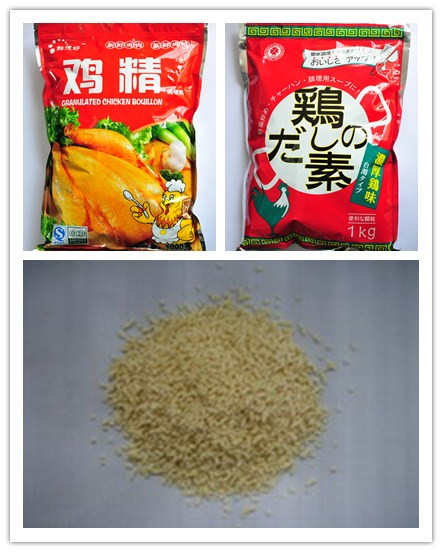
Answer:
- Chinese Rice Wine - It adds flavor and is good for removing strong odors, such as fish. (If rice wine is unavailable, use dry sherry).
- Chinese Dried Black Mushrooms - These are found in bins in Asian markets. Cheaper brands work fine in soups and stir-fries.
- Cornstarch - Used in marinades, and as a thickener. Can substitute for tapioca starch in recipes.
- Garlic - Along with ginger, it is often used to season cooking oil.
- Gingerroot - Always use fresh ginger unless the recipe states otherwise.
- Spring Onions (Green Onions, Scallions) - Often used as as garnish, or added to stir-fries in the wok.
- Oyster Sauce - Made from boiled oysters and seasonings, this rich savory sauce is used in meat and vegetables dishes, and is one of the key ingredients in Cantonese cooking.
- Rice - Long grain for meals; short grain or "sticky" rice for desserts or snacks. Feel free to use scented Jasmine rice.
- Rice Vinegar - White rice vinegar (also just called rice vinegar) has a delicate flavor that is much less harsh than regular white vinegar.
- Asian Sesame Oil - Used as a flavoring in stir-fries and soups.
- Soy Sauce - both light and dark. The bottles are not always clearly labeled, but you can tell by holding it up to the light - dark soy sauce is thicker and darker.
- Chili Paste - Made with chilies, salt, garlic, ginger and oil. A small amount of this spicy seasoning adds heat to stir-fries, marinades and sauces.
- Oil for Deep-frying and Stir-frying - Traditionally, the Chinese use peanut oil. However, you can use a vegetable oil, such as canola. Vegetable oil is healthier; also, peanut oil goes rancid sooner, which can be a problem if you're just getting into Chinese cuisine and don't cook Chinese food often.
With the exception of rice wine and dried black mushrooms, these ingredients can usually be found in the ethnic or international section of many supermarkets. They are all available at Chinese/Asian markets. Dry sherry can be purchased at a liquor store.
Fresh and Canned Vegetables
Celery, zucchini, and mung bean sprouts are all great choices for stir-fries. And be sure to keep a supply of canned bamboo shoots, water chestnuts, and baby corn on hand. (You can also find fresh water chestnuts and bamboo shoots at Chinese markets).


